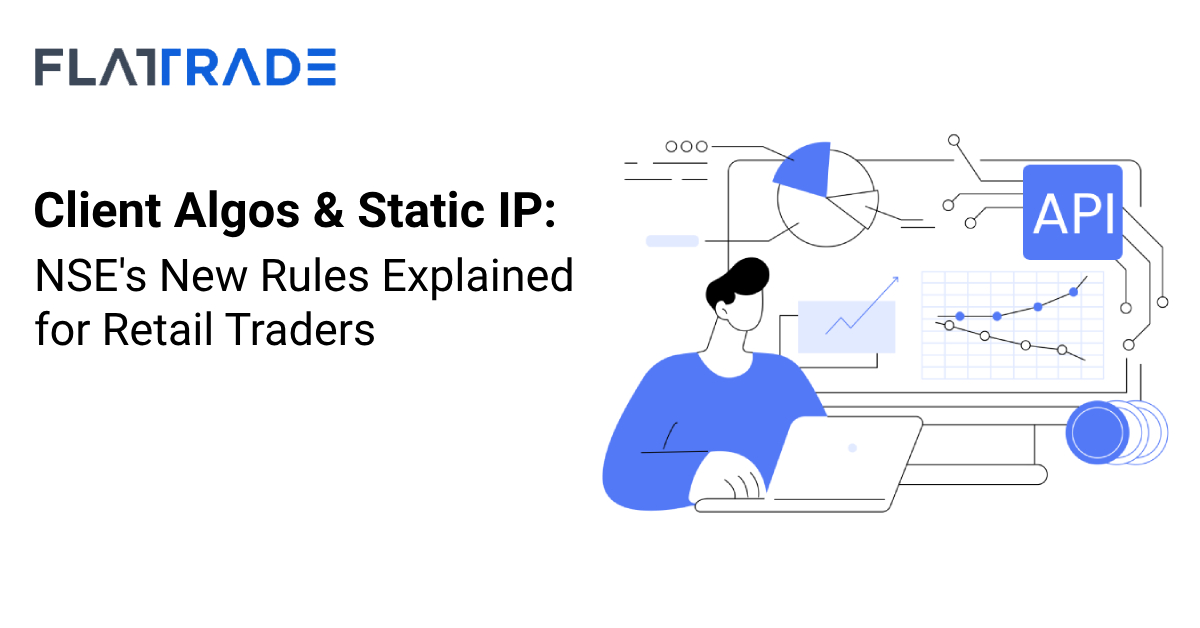The National Stock Exchange of India (NSE) has recently issued a circular NSE/INVG/67858, which marks a significant regulatory milestone for retail investors participating in algorithmic trading. For the first time, clear frameworks have been introduced specifically for Client-Generated Algos (CGAs), focusing on transparency, accountability, and risk mitigation. As algo trading becomes more accessible to retail traders, understanding these guidelines is crucial.
Client-Generated Algos: Definition and Applicability
Client-Generated Algos refer to trading algorithms developed by retail investors themselves or through third-party developers. These are executed through brokers’ trading APIs. Unlike broker-generated or provider-offered algos, CGAs offer a higher degree of customization and flexibility but also introduce potential risks. The NSE framework now brings these under structured regulatory scrutiny.
Registration Requirements and Thresholds
NSE distinguishes between registered and unregistered algos based on the order throughput.
Category | Requirement |
Unregistered CGAs | Permitted if they send ≤10 orders per second (OPS) per exchange |
Registered CGAs | Mandatory registration if sending >10 OPS |
Algo ID Tagging | Required for both registered and unregistered algos |
Registration Process | Clients must share details with broker; broker registers with the exchange |
Static IP Requirement: A Mandatory Condition
A crucial mandate in the new framework is the requirement of a static IP address for all types of algo access, including Client-Generated Algos. This requirement applies irrespective of whether the algo is registered or not.
The static IP address must belong to the client in the case of Client-Generated Algos. The client may provide a primary static IP and optionally a secondary IP for redundancy. Each API key issued by the broker must be mapped to one of these IPs. This ensures traceability, enhances security, and prevents unauthorized access.
Additionally, clients can update their static IP address, but only once per calendar week, unless exceptional circumstances arise.
Why Static IPs Matter in Algo Trading
Static IPs are fixed internet addresses that do not change over time. In the context of trading:
- They ensure secure communication between client and broker servers.
- They allow brokers to whitelist client systems and prevent unauthorized access.
- They provide clear audit trails, which are crucial for regulatory compliance.
- They help mitigate the risk of rogue algos or system manipulation.
How to Get a Static IP in India for Algo Trading
Obtaining a static IP is a straightforward process. Most major ISPs in India provide this as an add-on service. The typical steps involved are:
- Contact your Internet Service Provider (ISP).
- Submit necessary documents such as identity and address proof.
- Choose between residential or commercial packages.
- ISP assigns and configures the static IP for your connection.
Will Static IPs Increase the Cost of Trading?
Yes, slightly. The use of a static IP adds a fixed monthly cost to your trading setup. In addition, brokers may charge separately for API access or subscription, although many brokers like Flattrade offer these at zero or minimal cost.
Component | Typical Monthly Cost | Remarks |
Static IP Fee | ₹500 – ₹1000/Per month | Paid to the ISP |
Broker API Access Fee | Often Free | Varies by broker |
Developer/Tech Setup | Variable | If using third-party developers |
Algo Registration Charges | As prescribed by NSE | Applies only if algo exceeds 10 OPS |
NSE’s new framework is a progressive step that balances the innovation of algorithmic trading with the need for robust investor protection. By mandating static IPs and defining OPS thresholds, the exchange aims to reduce systemic risk while empowering retail traders with advanced tools.
Retail traders intending to use or currently using Client-Generated Algos should review their trading setup, obtain a static IP, consult their broker, and ensure they are compliant with these new norms.
For traders serious about algorithmic execution, the added steps offer long-term benefits in stability, transparency, and market integrity. The slight increase in operational cost is minimal when weighed against the advantages of safer and compliant algo trading.
Disclaimer: This blog is for informational purposes only and does not constitute financial or investment advice. Stock-related discussions are general observations and are subject to market risks and uncertainties. are not liable for any losses arising from its use. Investments in the stock market are subject to market risks. Read all the related documents carefully before investing. consult relevant financial advisors before investing.
No, registration is not required if your algo does not exceed 10 orders per second per exchange.
Yes, a static IP is mandatory for all Client-Generated Algos, whether registered or not.
You can change it only once a week unless you have a valid reason, which must be approved by your broker.
The broker will reject any orders exceeding the threshold as per their internal policy.
Only clients from the same family, as defined by SEBI, can share a static IP with proper written approval








